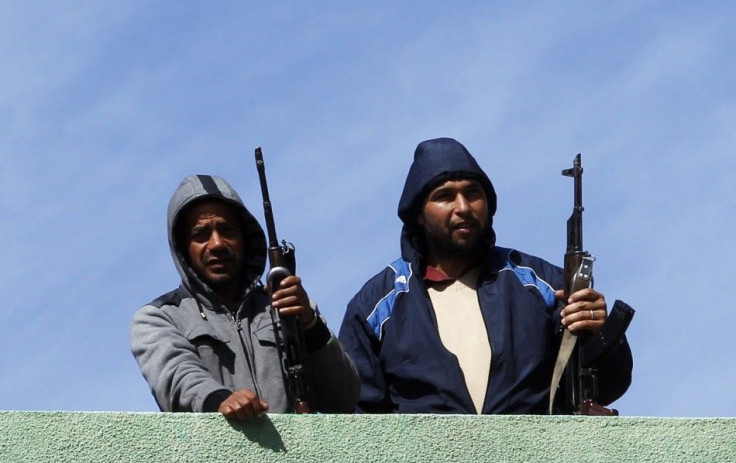UK news crew detained, beaten by Libyan soldiers

A group of UK-based journalists were detained and abused by security forces loyal to Moammar Gaffadi as they tried to reach the western Libyan city of Aw-Zawiyah, which has witnessed savage fighting between rebels and government soldiers.
The three BBC employees were captured at a roadblock on Monday, taken to a military barrack and then “beaten with fists, knees and rifles, hooded and subjected to mock executions by members of Libya's army and secret police.”
The BBC crew were blindfolded and handcuffed, and believed they would die.
We were lined up against the wall. I was the last in line - facing the wall,” Chris Cobb-Smith, one of the three.
I looked and I saw a plain-clothes guy with a small sub-machine gun. He put it to everyone's neck. I saw him and he screamed at me. Then he walked up to me, put the gun to my neck and pulled the trigger twice. The bullets whisked past my ear. The soldiers just laughed.
A second member of the BBC crew, Feras Killani, a Palestinian, was reportedly singled out by his Libyan captors for the worst of the beatings, citing that they disapproved of a fellow Arab reporting on the crisis. They also accused him of being a spy.
The third member of the team was cameraman Goktay Koraltan.
During their ordeal, the three said they saw evidence of torture on the bodies of Libyan prisoners, most of whom were opposition forces from Zawiyah.
I cannot describe how bad it was,” said Koraltan “Most of them [other detainees] were hooded and handcuffed really tightly, all with swollen hands and broken ribs. They were in agony. They were screaming.
Killani, the Palestinian member, said: Four of them [detainees] were in a very bad situation. There was evidence of torture on their faces and bodies. One of them said he had at least two broken ribs. I spent at least six hours helping them drink, sleep, urinate and move from one side to another.
After being held against their will for 21 hours, they were released and have now flown out of Libya.
BBC said that although a Libyan government official later apologized for the treatment suffered by its men, the UK news agency said in a statement that it strongly condemns this abusive treatment.
The safety of our staff is our primary concern especially when they are working in such difficult circumstances and it is essential that journalists working for the BBC, or any media organisation, are allowed to report on the situation in Libya without fear of attack, said Liliane Landor, languages controller of BBC Global News.
Despite these attacks, the BBC will continue to cover the evolving story in Libya for our audiences both inside and outside the country.
Meanwhile, Zawiyah has witnessed savage battles between rebel factions and government forces.
Libyan state TV claimed that the town was recaptured by pro-Gaddafi forces, however other accounts state no one has decisive control.
‘‘For the moment things are stable,” one rebel soldier told Euronews.
“The city is encircled by the army. The rebels are in the city’s main square while Gaddafi’s men are at the entrances to the city. We are short of food because the city is paralyzed.”
He added: “Yesterday, we suffered air attacks from Gaddafi’s forces, the day before there were even more. There were a lot of dead and injured and there was significant material damage.Three mosques were destroyed. People fled their homes and Gaddafi forces forced others to leave as well.’‘
Also, the Libyan government has offered a $400,000 reward for the capture of rebel leader Mustafa Abdel Jalil, the ex-justice minister.
© Copyright IBTimes 2024. All rights reserved.











